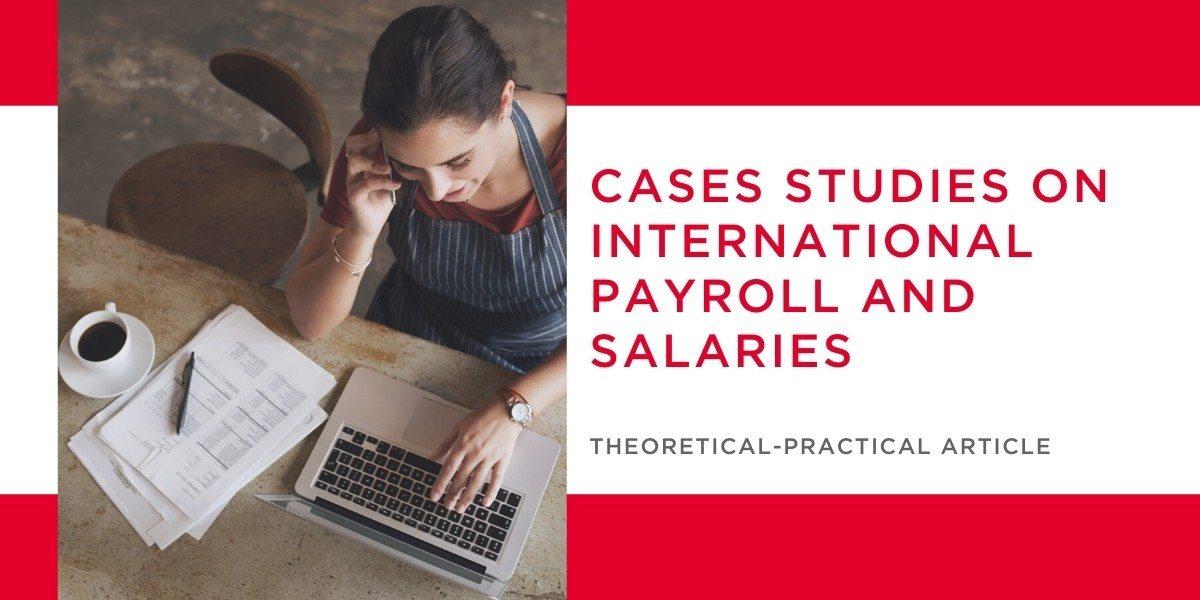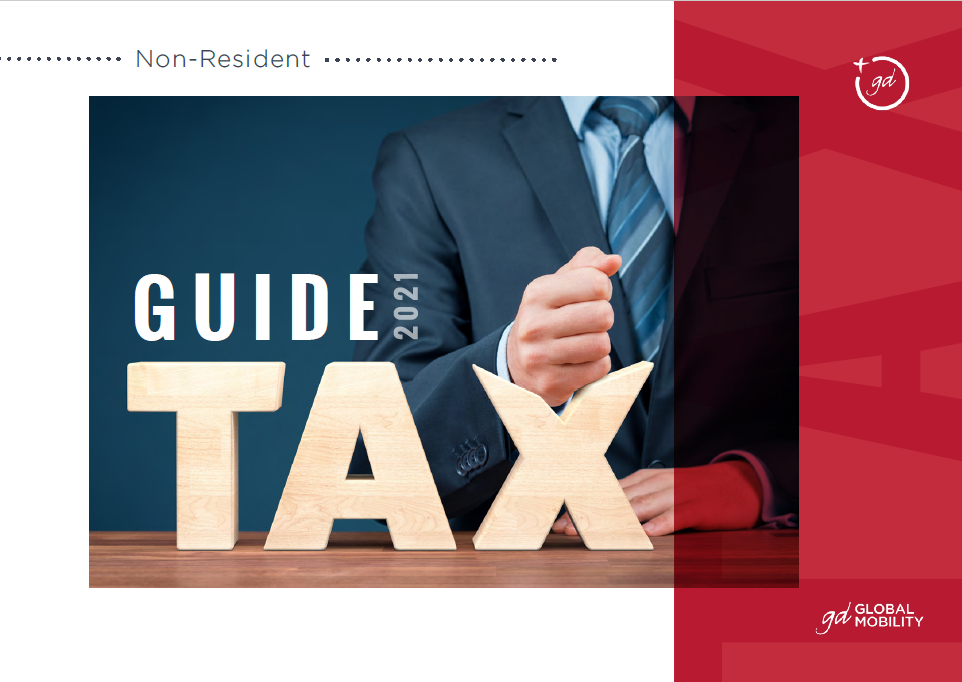
The international payroll scenario requires knowledge of the bilateral agreements that exist (or not) between two countries with regards to Social Security, since this agreement would allow workers who leave for another country to generate, keep or even expand their right to Social Security benefits. Here, we present some practical cases on what would happen to the payroll, contracts, Social Security contributions or allowances of workers posted outside of Spain.
Regarding obligations with respect to Social Security and in relation to the documents that the company will have to use in order to communicate the posting of a worker outside of Spain, you can visit this other post: Tax residence and international Social Security
1. A company with a work center in Spain has a worker of Spanish nationality living and working in the Philippines in a company (with another name). The Spanish company owns this Philippine company: does it make sense if there are two employment contracts, one in Spain and another in the Philippines? What would be correct?
It is important to note that, for Social Security purposes, there is a bilateral Social Security Agreement between Spain and the Philippines whose Article 6.1.a) provides that “The employee employed by a company whose headquarters are in the territory of a company of the Contracting Parties and is sent by said company to the territory of the other Contracting Party to carry out temporary work, shall be subject to the legislation of the first Contracting Party, provided that the foreseeable duration of the work for which they have been posted does not exceed five years, nor have they been sent to replace another person whose detail has ended, and provided that it is approved by the Competent Authority or Agency (to whom it has been delegated) whose legislation continues to be applicable”.
Consequently, there is no obligation to register and contribute in the Philippines for a maximum period of five years.
For these purposes, Form TA300 concerning posting will need to be submitted to the Social Security Administration prior to posting in order to obtain the corresponding Form A1 justifying continued use of the legislation of origin.
However, the case of the Philippines is somewhat complex because, despite the existence of a bilateral social security agreement for immigration purposes and in order to obtain authorization to work, the Philippine immigration authority requires that the local entity present an employment contract regardless of the worker being posted.
This employment contract would have merely operational effects and, therefore, despite it, the Spanish party would be required to formalize a letter of posting that regulates the conditions for the provision of services in that country, as an annex to the employment contract that governs the labor relationship.
This is all considering that a prior employment contract with the Spanish company exists and that the temporary posting is for professional reasons.
2. A worker of Spanish nationality with an employment contract in Spain is posted to Indonesia to a commercial representative office in order to work there. Does it make sense to keep their employment contract in Spain and additionally sign a contract in Indonesia under the labor legislation there, or what other procedures are available?
In this case, it is important to take into account that there is no bilateral Social Security Agreement between the two countries, so the different situations that could arise in this regard, based on a detailed analysis of the particular case and with special attention to the period of posting and its temporary or permanent nature, would be:
- Keeping the employment relationship (employment contract) with the Spanish company and temporary posting to the company in Indonesia. In this case, an employment contract with the company in Indonesia would be necessary. Since there is no bilateral agreement for Social Security purposes, it is important to point out that the Indonesian company will be obliged to affiliate, register and contribute. In Spain, according to the Order of January 27, 1982, the worker would still be in a situation assimilated to registration, so that the obligation to contribute remains while they stay in the destination country under the terms established in the same Order. For these purposes, a written communication must be sent to Social Security informing them of this situation.
- Termination of the employment relationship in the Spanish company and hiring in the destination company, with the possibility of signing a special agreement with Social Security for contribution purposes to avoid any effect on possible future benefits for the worker. In this case, the employment contract would be with the company in Indonesia and not in Spain.
3. Allowances and gross salary for posted days are exempt from personal income tax, as is the specific remuneration. Does the sum of all these exempt items have a maximum limit of €60,100 per year? Taking the table in the image as a reference, is the €400 monthly supplement a specific remuneration? So why is it not included in the exempt basis? Are there any rules for the amount of specific remuneration? Should it be related to the number of days of posting? Should it be related to the income produced by the work performed? Is it enough not to exceed €60,100 per year?
- Employee with annual salary of €50,000.
- Five months posting with allowances of €90 (€13,500) plus supplement of €400 monthly (€2,000)
- Allowances. Exempt due to not exceeding the 9 months time limit nor the €91.35 daily limit.
- 7P. Applicable if requirements are met.
- Excess regime. Not applicable (incompatible with 7P).
| Total salary received | Exempt base | Subject base | Withholdings without exemption | Withholdings with exemption | Tax saving |
| €65,500 | €34,870 | €30,630 | €17,023 (25.99%) | €5,115.21 (16.70%) | €11,907 |
It is important to differentiate the excess regime and the application of 7P. If the application of the 7P exemption is chosen, it will not be possible to apply the excess regime due to their incompatibility according to the regulations. Consequently, even when a specific remuneration is agreed, it will not be, in all cases, subject to exemption (only when the application of the excess regime is chosen over the application of 7P).
In this way, taking the data in the image as a reference, in the exempt base the following are considered:
- Amount of allowances for not exceeding 9 months = €13,500
- Calculation of 7P. In this case, the sum of the annual remuneration of 50,000 euros plus the posting supplement (2,000 euros) will be used as the basis for the calculation. Thus, 52,000 euros/365 x 150 (theoretical effective posted days) = €21,370
- Total exemption: 34,870 euros.
As can be seen from the foregoing, the 2,000 euros are not included in the exempt base due to the application of the 7P regime, although they increase the basis for the daily calculation of exemption from this regime by adding to the 50,000 euros of annual remuneration.
Regarding the exemption limits, it is important to bear in mind that the limit of 60,100 euros to be considered in the application of the 7P are limits to the exemption and not limits to the returns that the worker receives in the corresponding year. In this way, the 60,100 euros will apply as a ceiling to the exemption previously calculated according to the criteria set out above.
If the excess regime is chosen, it is important to note that there is no limit on exemption. Therefore, all those amounts that the worker receives above the wage amounts prior to the posting and without any necessary relation to the income produced by the work performed or the days of posting will be exempt.
Article 9.A.3.b.4 LIRPF allows, then, treating as exempt work income "the excess received by employees of companies, with destination abroad, over the total remuneration that they would obtain for salaries, wages, seniority, extraordinary payments, including benefits, family assistance or any other concept, by reason of position, employment, category or profession in the event of being posted to Spain".
4. Does the receipt of a bonus or other variable affect the daily calculation of 7P and, therefore, the amount to be included in the payroll once the posting has started and having already considered other values of 7P in previous months?
Taking into account that this bonus is not associated with an international project, the bonus or variable (not exempt) would be part of the remuneration that the worker will receive during the fiscal year and, therefore, will justify the recalculation of the base daily value for the application of 7P, which will entail a regularization of the amounts considered so far.
5. There is a new Directive that should have been transposed in July 2020. How does this new regulation affect the remuneration conditions of those posted to Spain?
This new regulation is Directive 2018/957, which replaces the one in force until now (96/71) and establishes some changes with respect to the current regulation.
This directive goes on to differentiate two distinct periods:
- the first 12 months of posting, extendable to 18 in the case of reasoned notification and;
- subsequent periods.
The Directive establishes that, during the first 12 months, the working conditions, including the remuneration, of the country of posting must be respected.
This seems not to pose many differences with respect to the current regulation, given that Law 45/1999 establishes the need to comply with the remuneration conditions of the legal regulations and collective agreements.
However, after these 12 or 18 months, the conditions of the worker who is posted will be fully linked to the labor legislation of the country of destination (rules relating to contract terminations and retirement are excluded) provided that the conditions of origin are not more beneficial.
In this way, the rules that transpose this Directive and their possible interpretations will need to be analyzed in order to look at to what extent the current criteria are going to be modified and, in particular, to what extent with regard to remuneration.
6. Posting allowances are not exempt if they exceed nine months. Is this non-exemption applicable from nine months onwards or does it affect the period of posting from the beginning? If exempt allowances have been paid and the nine months are exceeded, is this subject to regularization on the payroll?
Allowances will not be exempt in the case of posting for continuous periods of more than nine months in the same destination. This subjection will be applicable from the start of the posting, so it is important to analyze from the beginning if the posting is going to exceed, for any reason, that maximum duration, in order not to apply an exemption that later does not apply.
In the event that, in an unforeseeable way, more than nine months are exceeded and exempt allowances have been applied, this would be subject to regularization, with supplementary statements for the periods previously declared needing to be submitted.
It is important to bear in mind that the company is responsible for correctly withholding from the amounts paid to workers.
Contact us and resolve all your doubts about payroll management services in Spain or creating your company in Spain.




